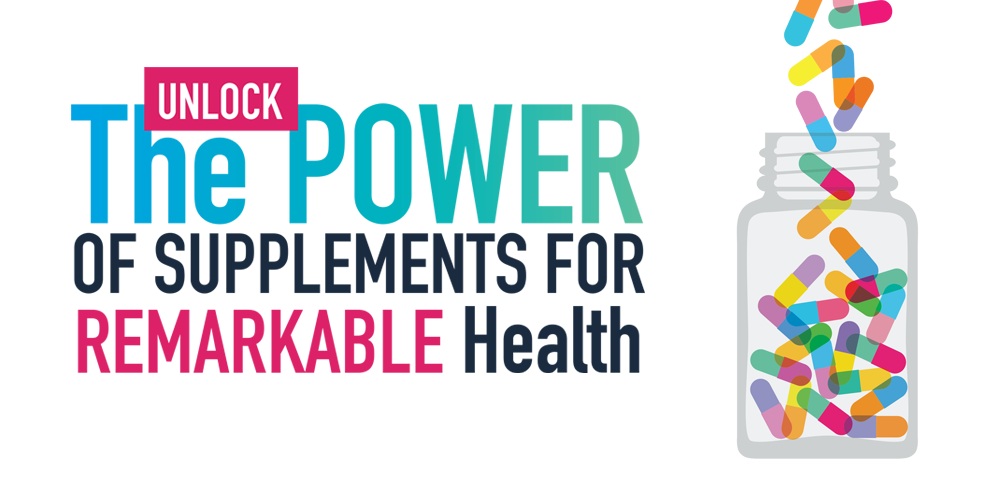
We believe that everyone can benefit from taking appropriate dietary supplements to meet their nutritional needs.
How vitamins, minerals, and other natural products can be used to improve health and fight disease.
We believe that everyone can benefit from taking appropriate dietary supplements to meet their nutritional needs. The idea that diet alone can provide sufficient levels of all essential nutrients is a fallacy. While conceivably possible, the reality is that most people do not come even close to meeting all their nutrient needs without dietary supplementation.
The data overwhelmingly supports this statement in underdeveloped countries and highly developed countries, including the United States and Canada. People in developed countries are overfed with excess calories but are undernourished when it comes to the intake of essential nutrients for health. In a study conducted by Dr. Joseph E. Pizzorno that measured many nutrients in 4,500 Canadians, he found that 99% were deficient in at least one nutrient, and more than half were deficient in four or more.
Dietary supplements are critical for counteracting the nutrient deficiencies and physiological stress of the modern diet.
HERE ARE SEVEN BIG REASONS WHY EVERYONE NEEDS MORE NUTRIENTS:
1. The recommended dietary allowance (RDA) for nutrients is based on preventing deficiency, not providing optimal nutrition.
2. Many RDAs have not been updated from research over the last several decades that indicate higher intakes are needed.
3. Higher intakes of many essential nutrients are associated with reduced disease risk and accelerated aging.
4. Adding to the problem is that the vitamin and mineral levels in our food supply have decreased dramatically because of modern farming practices.
5. Further complicating the situation is the fact that many environmental pollutants increase nutrient needs both through direct competition and by increasing the need for detoxification and antioxidant support.
For example:
- Heavy metals, like lead, cadmium, and mercury, impair the absorption or use of calcium, copper, iron, magnesium, selenium, and zinc.
- Pesticides, herbicides, and other persistent organic pollutants deplete key protective antioxidants in the body, thereby producing extreme biological stress.
6. Various disease states and drug-nutrient interactions create an increased need or cause direct nutrient deficiencies.
7. Genetics, biochemical individuality, and family history greatly impact nutrient needs but are still not addressed sufficiently in setting recommended dietary intakes of nutrients.
One of the key goals of dietary supplementation is to ensure that the necessary nutrients are present to allow the body to maintain health and function.
In addition to serving as necessary factors in normal physiology, many nutrients and dietary supplements possess health-promoting or therapeutic effects as well.
While many people still think that dietary supplements refer only to products containing vitamins and minerals, a dietary supplement includes a great many types of products, including conditionally essential and accessory nutrients, amino acids, herbal products and components, dietary fiber and prebiotics, probiotics, and postbiotics, mushroom and yeast products, enzymes, specialty fats and fatty acids (essential fatty acids, fish oils, etc.), protein, greens, phytonutrients, superfoods, and other natural compounds.
These are tremendous health-promoting gifts from nature. However, dietary supplements are not drugs, they work differently, often by addressing underlying root causes. Giving the body the nutritional tools it needs to heal is a great form of medicine. Nutritional therapy with dietary supplements is designed to support the body’s own natural healing processes. And that is simply good medicine.
AS FAR AS WHERE TO START WITH DIETARY SUPPLEMENTS. THERE ARE FOUR PRIMARY CORNERSTONES:
- A high-quality multivitamin and mineral supplement.
- Adequate vitamin D3 intake, typically 50–125 mcg (2000–5000 IU) daily.
- A high-quality fish oil product to provide a dosage of 1000 mg of EPA+DHA daily.
- Extra plant-based antioxidants like flavonoid-rich extracts such as grape seed extract or a “green drink” product that contains powdered greens. These greens can be dehydrated barley grass, wheatgrass, or algae sources such as chlorella or spirulina. Such products are rehydrated by simply mixing them with water or juice.












